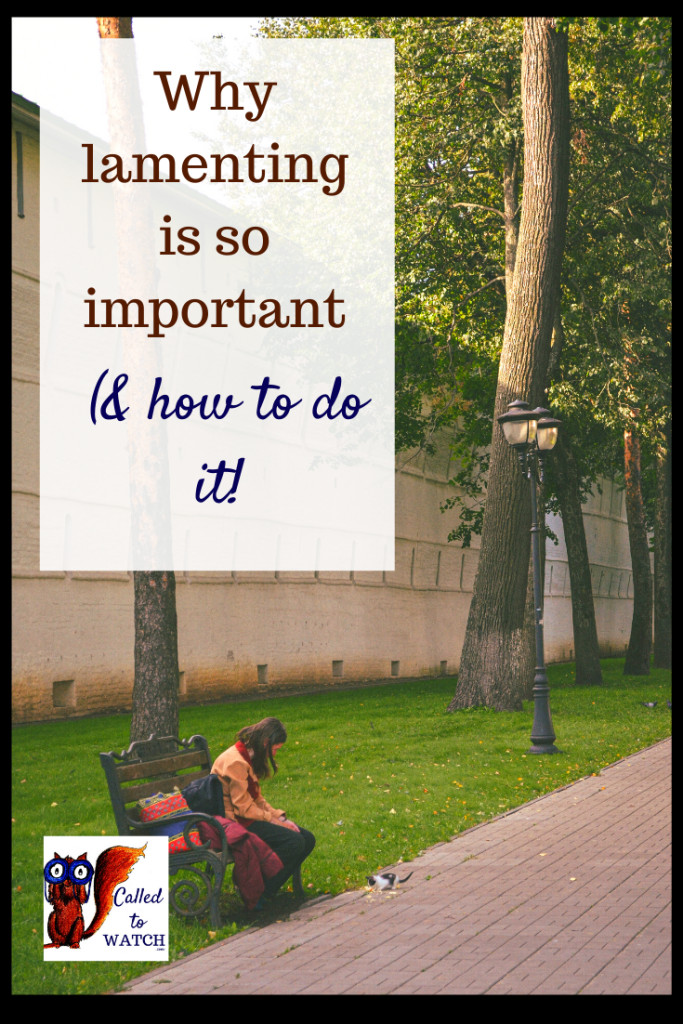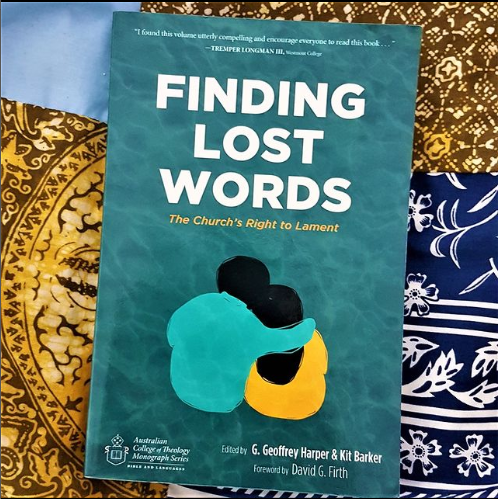Sharing your life with someone whose every day is impacted by chronic illness can be rewarding – but it can also be extremely tough. It should come as no surprise that the most popular post on this site is ‘7 reasons why watching someone suffer is the worst’.
Watching is hard, and yet when it comes to surviving and thriving in long-term Watching, I think we often fall into 3 misconceptions.
3 misconceptions about Watching
1: Only people who are even-keeled, happy –go-lucky pragmatists can survive and thrive Watching over the long-term Watching. I’m not suited for this.
2: Watching is hard, and so I’m inevitably going to become cynical/bitter/depressed. It’s just a natural human response.
OR
3: When it gets hard, the Christian thing to do is ‘deal’ with it quickly, and move on. It’s not good to dwell on the difficulty.
Now there’s a certain modicum of truth in all of these. Some personalities might be ‘naturally’ better suited to watching; it’s understandable if you find yourself growing cynical or depressed; and it’s not particularly helpful to ruminate on your troubles.
However, these ideas are also really unhelpful – and they’re perhaps more common than we think. Perhaps you don’t consciously think them – but we show we believe them by our actions. When we become bitter or jealous of other people’s capabilities or personalities, or become very critical of our own responses, perhaps we’re secretly believing point 1.
Or perhaps we find ourselves surrendering to our situation and our emotions, feeling stuck or trapped in a cycle or life we didn’t want – it could be that we’re believing point 2.
Lastly, maybe we discover that we are filling our schedules with busyiness or refusing to ask for help so we don’t have to sit alone and reflect. Perhaps we’re impatient with our sadness or our frustration and we do bury ourselves in distractions – because secretly, we believe point 3, and negative emotions make us feel inadequate.
As I’m sure you’ve realised, none of these responses to negative emotions (which could be summed up as fight, freeze or flight) are going to help us thrive in the long-run. They do not a happy Watcher make.
This is the second part in my 2022 series: Watching for the long haul
Lamenting – A Simple First Step
I want to offer up a rather simple first step for dealing with the difficult emotions that can arise in a Watching situation. There are many good and practical tips which you can (and should!) take – speak to a friend; speak to a therapist; speak to your doctor; speak to your Loved One – but here’s one you can do right now:
Speak to God.
It sounds obvious, and self-explanatory – but I don’t think it is. It’s very easy to say ‘take your sadness to God’ or ‘pray about that’… but what does that mean? What does that look like?
My friends, it looks like lamenting.
What I used to think Lamenting looked like
In the last decade or so there’s been several good books written about the place of sorrow and lament in the Christian life. I’ve reviewed one here. But I want to get really specific in this post – because I used to think lamenting looked like this:
Dear God, I’m really struggling today, I feel really sad. Please help me. Amen.
And then, when I didn’t immediately feel better, I’d move on to distraction, or anger. Now I’m not going to say there’s a special formula you need to pray that will make all your pain go away – but I AM going to say that the more time we take to pray, the more honest our prayers, the more we will see the face of Jesus in our suffering.
Jesus says, come to me all you who are weary and burdened and I will give you rest.

Why lament?
During the last lock-down in Sydney, I consciously lamented as a response to anger, to sadness, to disappointment – and in doing so, I have drawn closer to the God who cares. Lamenting:
- Validates our emotions – they’re worth going to God about, they’re not shameful.
- Gives us a ‘box’ or a form to hold our experience – keeps us from ruminating/grumbling
- Gives us a physical/practical way to respond to our emotional turmoil – the first/next step
- Takes us into the presence of God and makes us stay there – widening our perspective, which often brings peace and encouragement.
But what exactly IS lament?
SO what is a lament?
Any cry of sadness is technically a lament. But when we talk about Christian lament, we’re talking about lament as shaped by the ‘lament Psalms’ in the Bible book of Psalms. Scholars have seen that the lament psalms normally include several sections:
1: an address to God
2: a complaint
3: an expression of trust
4: an appeal or petition
5: an expression of certainty
6: a vow of praise.
For more information see: Finding Lost Words, and in particular the chapter: Lament and Pastoral Care. NOTE: this post is heavily based on Finding Lost Words, which is an excellent read, and available at all major booksellers.

Working through these sections in your prayer can be extremely helpful. For example:
1: an address to God
Dear God, I’m coming to you right now, because you are a God who is Near, who has promised to be close to me in times of suffering.
2: a complaint
I’m really angry right now God. I feel that those close to me are making decisions about covid without thinking about my Loved One and other people at risk, and they don’t seem to be listening! I want us to be on the same page, and I’m hurt that we even have to have these conversations. Why is it like this? I’m furious!
3: an expression of trust
I know, God, that you are a God of justice. I know that you see all things rightly, and one day you will judge all things. Even as I write this, I’m grateful for all our sakes that you are a God of mercy too. I know you have my Loved One and all your people in your hands, and that ultimately you are the one who must protect them, and you are the one who brings unity to your people and changes hearts.
4: an appeal or petition
Oh Lord, change hearts! Transform your people – may we all be on the same page when it comes to the poor, the sick, the vulnerable. Grant me the trust to deal with this well, the courage to speak, the love to speak gently.
5: an expression of certainty
I know you will make a way for us, Lord, and that you have a good plan for your people. I know that you work in the toughest of times, and your spirit can bring joy in the midst of conflict.
6: a vow of praise.
Oh Lord, I want to look back at this situation and be able to praise you for the way you’ve worked! Please, even now, help me to take every opportunity to praise you.
The reality of Lamenting
Now some of these steps might seem unnecessary or boring or trite, but from experience, working through them, physically writing my prayer down or praying aloud has been so valuable. Something happens when we’re forced to address our feelings to God in something other than a quick, off-the cuff prayer. We’re forced to articulate what we know about God, what we want him to do, where we are at – in short, we’re forced to have a real conversation, a complex conversation.
There’s a time and place for short prayers, but there’s a time and place for lament prayers too. I suspect it’s often more frequently than we think! I committed to praying aloud a lament prayer for several evenings in a row using the above structure. Sometimes I was lamenting about the same problem as the night before – but each time was helpful in helping my turn to God in my distress, making my emotions concrete and articulate, and bringing me the peace which can only come from a deep relationship with my Creator.
If you’re going to thrive as a Watcher, or even just as a Christian, the Bible shows us that lament should be part of our ‘toolbox’. Why not try it today?
PS: Enjoyed the post above? Get the next one delivered straight to you! Sign up for email notifications
I’m also on Facebook, Pinterest, Instagram & Twitter! Meet me there for more interesting reads, resources and community.


Thanks for the reminder about the importance of lament! God has given us lament as a gift, and we too often are missing out.
So true!